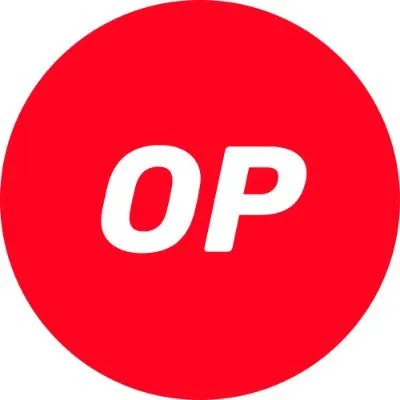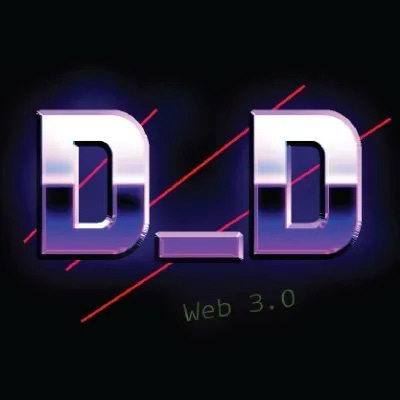🗳 This Week in Governance - Feb 9
A weekly resource covering crypto governance, politics, and power.
📣 Key Points
MakerDAO starts crafting its constitution
dYdX debates grants program
ENS executes its ETH for USDC swap
… and much more
Voting Activity (L7)
🗳️ 63,046 ballots
👥 24,271 voters
📜 229 proposals
🌐 68 active DAOs
Let’s get into it 🔥
🗞 News Brief
MakerDAO begins drafting its Constitution
MakerDAO founder Rune Christensen last week introduced a draft of the Maker Constitution, a follow-on of the DAO’s pursuit of the “Endgame” plan. Maker Protocol requires the support of a DAO, Christensen argues, which “means it relies on governance decisions by humans and institutions holding MKR tokens” — and this human input means vulnerabilities. The Constitution provides a “strategic tool” for building resilience into Maker governance.
“Robust grassroots community participation, by people who participate in alignment with the purpose of the DAO, is the essential tool to defend the protocol against these risks.”
The Constitution describes the purpose of DAI, which is to provide “access to an Unbiased World Currency”; the public goods commitment, which will “share financial success with the world through charity”; and the principle of “clean money,” which recognizes the interdependence of financial infrastructure and “the global environmental risks of climate change,” setting up a Clean Money Fund to that end.
dYdX debates grants program renewal
The dYdX grants program (DGP) was first started just over a year ago and was renewed for a six-month period as v1.5 in August. The grants program lead, Reverie, recently posted another request for renewal, but this time with no request for funding (outside of operations) as funds remain from the previous grants cycle ($2.7M). The post describes the aim to continue funding community-led initiatives ahead of a dYdX v4 launch, at which point the DGP will go through a complete overhaul to “onboard the next generation of dYdX protocol builders.” The operational budget for the DGP was reduced to $372k for the upcoming six-month period.
What seemed a standard renewal request soon became an intense exchange on the forum (and elsewhere) as complaints about the DGP surfaced. Some accused the DGP of a “severe lack of accountability and transparency,” red tape, haggling, and so forth. One endorsed delegate claimed to be issuing criticism collected from at least ten others and suggested a formal, third-party audit of the program. Some asked about KPIs and wondered who actually makes the decisions about grants, based on what criteria. As the DGP team responded, some commenters began to argue with each other with courtier-like flourishes of sardonic politeness amidst accusations of extortion. Eventually, a Foundation representative stepped in to ask all to adhere to forum guidelines. The grant-renewal request has since been posted for a vote.
ENS exchanges 25% of treasury from ETH to USDC
As we noted here a couple of weeks ago, ENS was discussing a proposal to sell 10,000 ETH for the equivalent in USDC — in order to “ensure that the ENS DAO has enough money to cover operating expenses” for the next two years or so. Protocol revenue is generated in ETH, and 100% of the spendable treasury is denominated in the asset. Maintaining such a high percentage in a single, volatile asset is risky, the proposal argued. 10k ETH is about a quarter of the treasury. That proposal was executed on the morning (EST) of February 9th: 10k ETH for 16,226,542 USDC.
📚 Good Reads
Tokenized Communities: Year in Review, from Forefront
Wikipedia: The World’s First DAO, by Alex Stein
Whole Crypto Catalog: Progressive Decentralization, from Variant
Seeking a Revamp of the Concept of A DAO, by eaglelex.eth
Addressing the Low Token Claims in SafeDAO, by Elem Oghenekaro
The Maker Constitution, by Rune Christensen
Forums:
BanklessDAO: Grant Committee Compensation Discussion
Decentraland: Rebuttal Voting Period for Whale Votes in final 24 hours
Euler: Euler Governance Process v0
Uniswap: Accountability Committee Proposal
🧵 Threads
How much does it really cost to run a DAO? from Token Terminal
Why do people need anonymity? by Daniel Ospina
Can compliance and (self-)regulation be a DAO superpower? by DAOstar One
🎧 Listens
Reinventing the leviathan + learning from history w/ Jon Hillis, on On the Other Side w/ Chase Chapman
DAO Governance, a space hosted by MemeBrains
on-chain governance is easier than you think, on DAO Talk
This Week in DAOs: The Latest in Schemes, Safety, and Privacy, on DAO or Never
📜 Proposals
Optimism Upgrade Proposal: Bedrock
This is the first protocol upgrade presented to Optimism’s Token House, part of their governance Collective. It follows the protocol upgrade proposal guidelines recently established by the community. The Bedrock release of the OP Stack “offers a new level of modularity, simplicity, and Ethereum equivalence for Layer 2 solutions, providing unprecedented performance and functionality,” says proposal author Ben Jones, setting “the stage for a Cambrian explosion of aligned L2s.” Protocol specs are provided, as well as developer docs. Voting will begin on February 16th.
👥 Type: Forum Discussion
✍ Author: Ben Jones
Developer DAO Governance Structure Upgrade
Stating that there are “several challenges to our current [governance] model,” the proposal authors make the case for structures that will help contributors “more freely create value for the DAO, its Members and the ecosystem” and establish “a more equitable and fair distribution of resources and value.” The proposal defines Member, Contributor, and Steward roles, and describes the intent of the Developer DAO Foundation, and establishes a new process for forming sub-DAOs while describing their purpose. (See our related Brief on the Developer DAO improvement proposal process.)
✅ 74.11% voting “for”
⏰ Voting ends: Feb 11th
⚡ Type: Snapshot Vote
💬 Read the discussion
✍ Authors: @kempsterrrr @Erik_Knobl @ntindle
Lido: Staking Router
This proposal, which is in preliminary discussion, describes the Lido registry’s “existing monolithic architecture,” which “makes it difficult for Lido to onboard different validator subsets” — limiting the diversity of the validator set. The author proposes transitioning to a modular architecture via the Staking Router, a control contract that would allow “various validator subsets [to] join Lido as separate registries, or modules.” Every module would be responsible for its own operators, keys, and rewards.
👥 Type: Forum Discussion
✍ Authors: Nikita Logachev, Eugene Pshenichnyy, Mihail Semenkin, Azat Serikov
💭 Ecosystem Takes


🎈 Have a Meme
📮 Stay Up to Date
Follow us: Twitter | Discord
Subscribe to: Newsletter | Mirror | Apple | Spotify
📣 Boardroom API access update 📣 - get your key!
The Boardroom API are being enforced since last month.
If you do not already have a key use this form to request one here. Once you have submitted we will email you shortly with a key. You can always reach out on discord with any questions or concerns.












